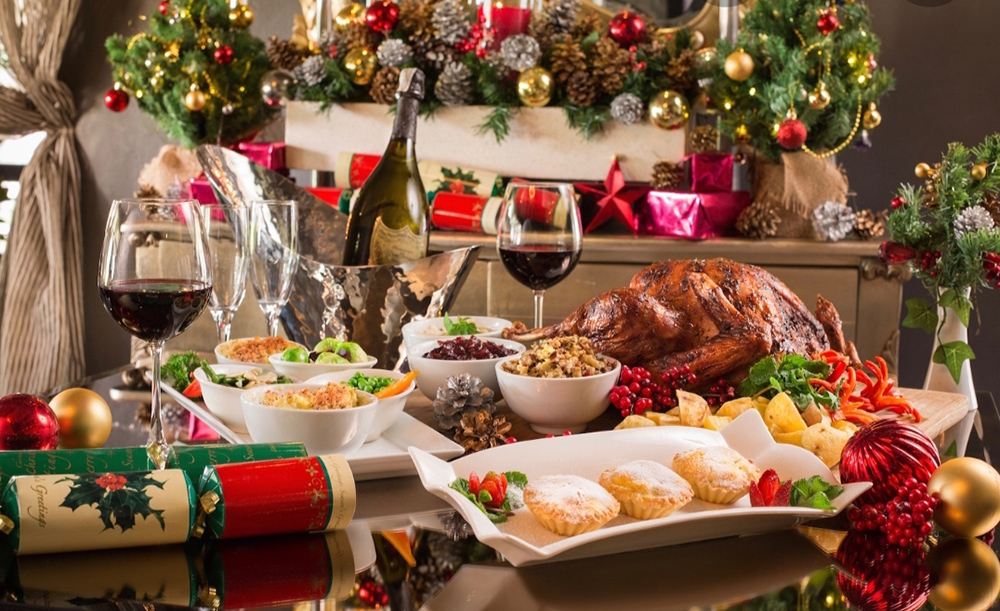By Nancy Adler

During the holiday season, unhealthy snacks like cookies and other goodies tend to be available for you to take as you please. So how do you handle this? While it’s always important to be realistic and not deprive yourself of a few sweet treats, you may want to stay somewhat on track to feel your best and energetic through this busy season.
When treats are easy to access, you’re more likely to snack unnecessarily. At home, this problem can be solved by keeping treats out of sight. However, that strategy is more difficult to avoid in situations that you cannot control, such as at your workplace or a family party.
The challenge is on! Try to be mindful of your snacking habits. If you find yourself munching just because there’s food around — and not because you’re hungry — it’s best to avoid snacking altogether. However, if you are hungry and need a snack, opt for healthier foods. Fruits, vegetables, nuts, and seeds are filling snacks that don’t contain added sugars or unhealthy fats — both of which can lead to weight gain.
When the holidays arrive, it can be easy to overload your plate. Those who eat larger portions tend to gain weight more easily than those who don’t .People are often in a rush during the holiday season, which frequently leads to multitasking during meals.Studies show that those who eat while distracted are more likely to overeat. This is because they’re unable to pay attention to their body’s fullness signals .
To prevent this, eat mindfully and minimize distractions — including work and electronics.Try to chew slowly and thoroughly, which will allow you to better recognize your body’s fullness signals and consume fewer calories. It can also be helpful to take a few deep breaths before you start eating. This can induce relaxation and help you keep your full attention on your plate, rather than your to-do list.
Sleep deprivation, which is quite common during the holidays, may cause weight gain.This is because those who do not sleep enough tend to be hungrier, consume more calories, and exercise less. Sleep restriction may increase your hunger hormone levels, ultimately leading to higher calorie intake. Additionally, inadequate sleep has been linked to lower metabolism This may be caused by alterations in your circadian rhythm — a biological clock that regulates many of your bodily functions .
Keeping up with the demands of the holidays can be stressful. Stressed individuals commonly have high levels of cortisol, a hormone that’s released in response to stress. Chronically high cortisol levels may cause weight gain, as they have been linked to greater food intake. Additionally, a stressful lifestyle may cause more cravings for junk food . For these reasons, it’s important to keep stress levels under control in general — but especially during the holidays, when you might be busy and surrounded by unhealthy foods. For these reasons, it’s important to keep stress levels under control in general — but especially during the holidays, when you might be busy and surrounded by unhealthy foods. Plenty of techniques can help you reduce stress. Some options include exercise, meditation, yoga, and deep breathing.
It’s vital to remember that Holiday meals are typically rich in carbs but low in protein. Anyone that knows me and my nutritional beliefs knows how I preach that it’s so important to include some protein with every meal, as it promotes fullness and may be useful for weight maintenance . In fact, eating protein with meals may automatically reduce calorie intake by reducing hunger and appetite. In fact, eating protein with meals may automatically reduce calorie intake by reducing hunger and appetite.
Protein is also beneficial for weight control because it increases your metabolism and levels of appetite-reducing hormones. For these weight-management benefits, you should include at least 1 ounce (25–30 grams) of protein in each meal. In fact, eating protein with meals may automatically reduce calorie intake by reducing hunger and appetite. Sources of protein include meat, poultry, fish, and some plant foods like beans and quinoa.
Fiber is another important nutrient that induces fullness. Some studies show that increased dietary fiber can reduce total calorie intake, which may help prevent weight gain over the holidays . Unfortunately, many common holiday foods lack adequate amounts of fiber. Do your best to eat Fiber rich foods such as vegetables, fruits, legumes, whole grains, nuts, and seeds.
So you say you are the chef in charge of this holiday meal? Many people spend a lot of time cooking and baking during the holiday season. Unsurprisingly, this can lead to weight gain because it’s easy to taste-test your dishes. Even small bites of holiday dishes can add up in calories. Tasting your dishes can be important, especially if you’re cooking for others — but a tiny bite is probably more than enough. You should also make sure that you aren’t hungry while cooking, as it’s much easier to go overboard on taste-testing when your stomach is growling. Try to continue to live by the eating every few hours rule to help keep you full and satisfied so those food challenges that come along are much easier to say “ no” to.
The best way to overcome this is to control portion sizes or use smaller plates.To determine an appropriate portion size, read food labels and the recommended serving sizes listed on recipes. If you can’t do either, use your best judgment to fill your plate with a reasonable amount of food.
Nancy Adler is a certified nutritionist and practitioner in Linwood. Her office is located in Cornerstone Commerce Center, 1201 New Rd. Learn about her practice at ww.nancyadlernutrition.com (609)653-4900
You may listen to Nancy every Sunday at 2 pm Nancy Adler Nutrition LIVE! NewsTalk 1400 WOND





